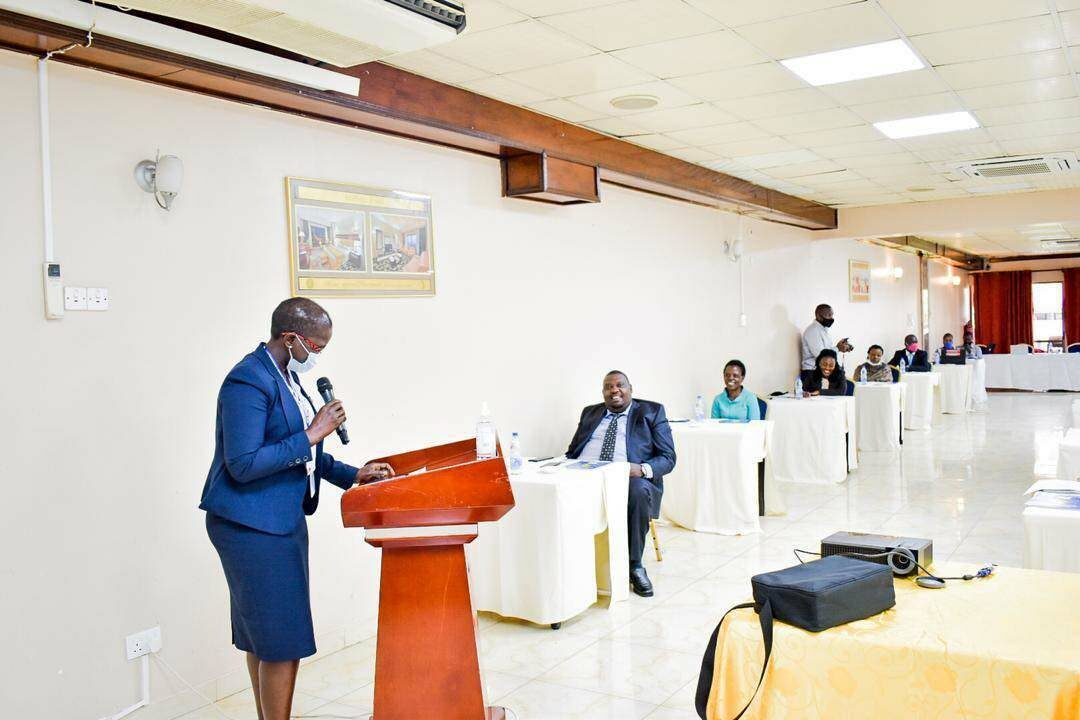In conjunction with a national program working with the Justice Law and Order Sector (JLOS) and UN Women, funded by UN Women, to strengthen the capacity of JLOS in responding to cases of Violence Against Women and Children (VAW/C), IJM participated in facilitating a training on handling cases of Sexual and Gender Based Violence (SGBV) on 10th August.
As part of a move to increase service providers’ skills in handling SGBV cases, investigating and gathering evidence, caring for survivors, and ensuring justice, the Office of the Directorate of Public Prosecutions (ODPP) hosted this workshop dedicated to training trainers. The workshop focused on the Prosecutor’s Handbook on SGBV cases and occurred during the week of 10th-14th August 2020. As a longtime partner of IJM Uganda, the ODPP invited IJM staff to attend and help facilitate part of the workshop in a session on Trauma-Informed Care at all stages of prosecution.
Prior to the workshop, IJM Uganda staff were significant contributors to the drafting and development of the Prosecutor’s Handbook on SGBV to be used by all personnel in that field. The handbook, funded and supported by UN Women and ODPP, covers topics including what GBV is and its most prevalent forms in Uganda, the legal framework in Uganda, protection of survivors, and investigation of SGBV cases in their entirety.
This handbook will play a crucial role in training all prosecutors working in the SGBV field, ensuring adherence to national policies, increasing effective investigation of cases for trial, and caring for the needs of survivors of SGBV.
With the handbook completed in June, the workshop was the official launch of its use in Uganda. The attendees, including health officers, judicial officers, police, prosecutors, and members of Civil Society Organizations, were trained in its content and will be commissioned to train others to ensure multiplication of skills and capacity-building across Uganda.
Cissy Namuzimbi, Psychosocial Coordinator for IJM Uganda, led the session on Trauma-Informed Care of survivors. In her session, she highlighted the importance of understanding the effects trauma has on survivors of SGBV and how that impacts case handling. Trauma-informed care means having a survivor-centred briefing room to take statements and having a safe and clean environment for medical exams. Cissy’s training will help increase capacity of all relevant stakeholders and increase responses to survivors in effective, helpful, and restorative ways.
